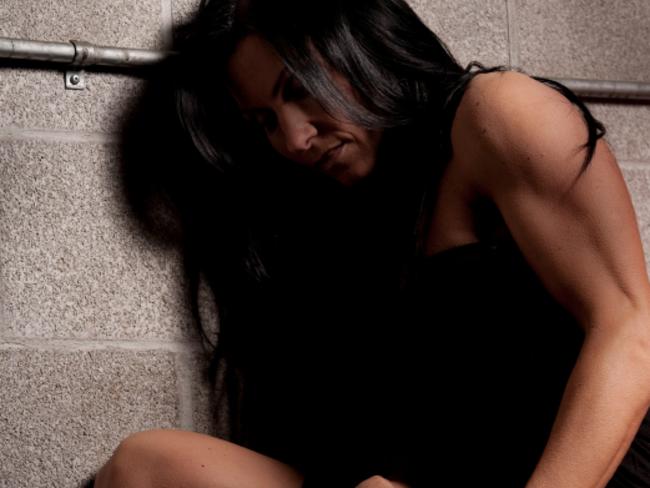‘Ripe for sexual assault’: Australian universities need drastic action to stop attacks on women
STUDENTS say a culture of masculinity, a hierarchical social structure and copious amounts of drinking make universities dangerous places.
STUDENTS have called Australian universities “ripe for sexual harassment and assault” as young women face degrading comments and violent attacks.
A 19-year-old man will appear in court in August on three counts of alleged sexual intercourse without consent at Sydney University’s St John College in October last year.
In 2012, a young woman at the same college nearly died in hospital after being forced to drink a cocktail of shampoo, dog food and alcohol and suffering internal bleeding.
“With something that horrific, the university does step up and take action, and the students were suspended, but other incidents are swept under the rug,” the University of Sydney’s women’s officer Anna Hush told news.com.au.
“They range from sexualised comments from peers and academics to unwanted advances at campus events to the more serious.
“Sexual assault and harassment are issues everywhere, but there are certain factors that exacerbate them. Colleges have a culture of masculinity, a hierarchical social structure and a lot of drinking. That makes them ripe for sexual harassment and assault.”
‘CULTURE OF SILENCE’
Ms Hush, a 22-year-old studying arts and sciences, said universities often feel unsafe at night and several women had told her they had been chased across campus.
She said a “culture of silence” that discourages reporting of incidents exists at universities across the country, according to her counterparts at other institutions.
“I don’t know any universities in Australia that have best practice on this,” she added.

The National Union of Students’ Talk About It Survey on violence against women last year found 67 per cent of respondents had had an unwanted sexual experience. Only three per cent of respondents who had experienced assault or harassment reported it to their university and only two per cent reported it to police.
Australian universities have come together to tackle the problem for the first time with a campaign called Respect. Now. Always, run by Universities Australia. But students have criticised the initiative as ineffective.
“It’s a poster campaign, it raises awareness but it doesn’t really do anything to address the issue,” NUS women’s officer Heidi La Paglia told news.com.au. “That’s a view supported by people in the sector. The outcomes are not really measurable or visible.”
The NUS plans to launch its own campaign on July 16 to bring in real change, such as specially trained support staff on every campus and 24-hour security apps for iPhones.
“The response of universities has been very diverse,” said Ms La Paglia. “Some committees are looking at how best to implement programs, others have opted out completely.”
$1 MILLION TO FIND OUT THE TRUTH
Universities Australia chief executive Belinda Robinson told news.com.au that almost $1 million has been committed this year to collect comprehensive data on the prevalence of sexual assault and harassment at the nation’s insitutions.
“Universities Australia has been working closely with the Australian Human Rights Commission, which will lead this survey work with the active support of Vice Chancellors and Universities Australia,” she said.
“We want to develop a robust, sophisticated survey that will give us comprehensive baseline data to guide further improvements in university policies that prevent sexual assault and harassment, and services to support students who report.
“Awareness-raising is an absolutely crucial part of preventing sexual assault and sexual harassment — and ensures that students and staff know where to report and how to access specialist support services.
“Work has also been progressing on a project to gather best practice policies and procedures and share them across the sector.”
Ms Robinson said every university offers free support and counselling services for students seeking assistance, with several, including Victoria University, establishing dedicated safety units.
Others, including the university of Queensland and Australian National Unversity, have launched personal safety apps.
Universities Australia is working on the survey with the Australian Bureau of Statistics and expert organisations including 1800 RESPECT and Our Watch.
WHAT WERE YOU WEARING?
But Ms Hush said students who had been attacked described being asked inappropriate questions by untrained case workers at their universities about what they were wearing, whether they had been drinking and whether they had had sex with that person before.
In April, a screening of The Hunting Ground, a groundbreaking US documentary on campus rape, was attended by just three people at the University of Sydney after management failed to promote the event, student newspaper Honi Soit reported.
A spokesperson for the university told news.com.au: “The University of Sydney Union, run by students, promoted The Hunting Ground screening. The screening is independent from the 18 month-long working group which has engaged students about unacceptable behaviours on campus, and which has informed the recommendations and implementation plan at the University.
“The University of Sydney is undertaking a suite of measures ranging across many aspects of campus life to ensure the safety of students. This ranges from improving reporting channels and accessible website information, updating policies on harassment and complaints handling, through to improved awareness and training of security staff and on campus physical safety such as lighting and security transport in the evening.”
Judging by the NUS survey, many students are still not reporting harassment and assault, so the figures remain artifically low. The new measures could mean we finally understand what’s really happening.
“Women are systematically disbelieved,” said Ms Hush. “Universities don’t have a preventative approach that might exist in the workplace.
“There’s a culture where students don’t feel comfortable coming forward.”
Call 1800 RESPECT (1800 737 732) if you have experienced, or are at risk of, family and domestic violence and/or sexual assault.
Contact Lifeline to connect with a crisis service in your state on 13 11 14.



